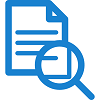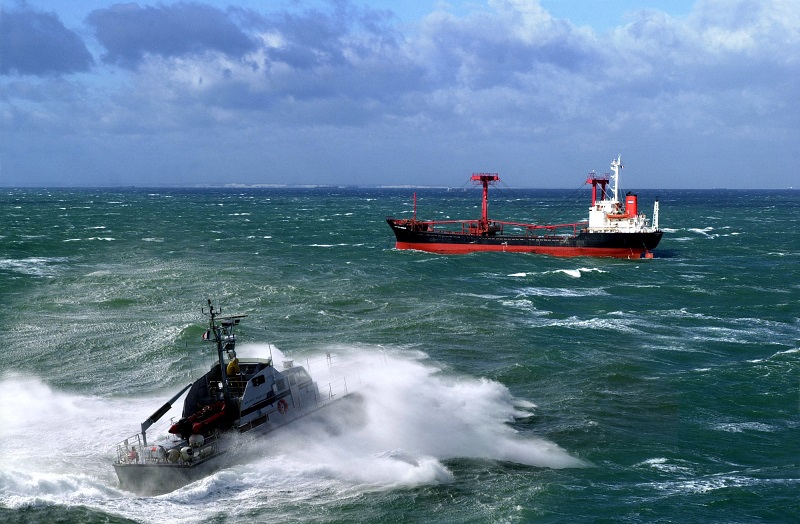Fight against money laundering and terrorist financing in West Africa: “Political will is crucial”
What are the challenges for the fight against money laundering and terrorist financing (AML/CFT) in West Africa?
Stéphanie Berthomeau – West Africa is highly exposed to the terrorist risk, in particular – but not only – in the Sahel region. There is also a high level of organised crime there, with the existence of a diversity of trafficking (drugs, arms, human beings…). Beyond their security consequences, these phenomena have adverse effects on national economies: it is therefore important for West African States to strengthen their fight against this type of crime in order to protect their banking and financial systems.
Samuel Diop – It should also be emphasised that certain structural weaknesses make the region particularly vulnerable. The permeability of borders allows traffickers to operate freely, while the institutional weakness of States and certain shortcomings in terms of financial governance (corruption, tax evasion and fraud…) complicate their fight against money laundering and terrorist financing.
Claire Dollmann – In addition, the AML/CFT mechanisms are themselves still relatively underdeveloped: although significant efforts have been made in recent years, there are few convictions and asset seizures. Furthermore, there is a lack of coordination between actors of the penal chain: the administrations, the police and the justice system do not work together and do not consult each other beforehand on a common strategy. Consequently, the actions taken do not lead to the conviction of the people involved and the seizure of their assets, which is the main objective of the fight against money laundering and terrorist financing. The first challenge for OCWAR-M will therefore be to support the mechanisms established in Member States so that this objective can be achieved.
What approach is OCWAR-M taking to address these issues?
Stéphanie Berthomeau – OCWAR-M is a customised project: our objective is to meet the specific needs identified in each partner country, so that they have a better understanding of the risks, a stronger legal framework for action and the tools required for an effective operational response. We have held discussions with them to develop an action plan. We will also be working closely with GIABA, the ECOWAS institution responsible for building the capacities of Member States in terms of AML/CFT and organising national risk assessments and the mutual evaluations of Member States.
Claire Dollmann – We will be taking action in all the countries covered by the project, but we will have a specific experience in two countries selected by the project as pilot countries, Ghana and Senegal. Their progress in the fight against money laundering and terrorist financing – their AML/CFT action plans have just been assessed by GIABA – means that it is necessary and possible to help them efficiently develop their mechanisms. This experience in the pilot countries will subsequently benefit all the countries.
Samuel Diop – We will have a very pragmatic approach, in order to address needs identified during the missions conducted in the project start-up phase in each partner country. For example, we plan to set up a close monitoring of five financial intelligence units (FIUs) in which weaknesses have been identified to allow them to join the Egmont Group – an international financial intelligence network which gathers FIUs from all over the world and aims to improve cooperation on AML/CFT. We will also be able to work on non-financial institutions – notaries, lawyers, stockbrokers, casinos… – whose supervision is still very underdeveloped.
How will you work? What roles do you each have?
Stéphanie Berthomeau – As OCWAR-M project coordinator, I am responsible for managing the project and its activities, by ensuring that the action plan defined during the project start-up phase is properly implemented. I also have representation and coordination tasks with the other projects working on the subject of AML/CFT in West Africa, whether or not they are financed by the European Union. The project also benefits from the experience of two long-term experts who are specialists, respectively, in the legal and financial aspects of AML/CFT. This specialised expertise is very important for the success of the project.
Claire Dollmann – I’m a magistrate, which allows smooth technical and operational exchanges with all the actors of the “penal” chain (chain of investigations from the FIU – financial intelligence unit – to the court conviction, including the specialised administrations and the criminal investigation police officers). The objective is to really provide the best possible support to these actors in order to develop more effective coordination, with suitable training in each country and for each entity, in a specific and coordinated manner. This is because a shortcoming by just one of these actors compromises the credibility and effectiveness of the entire chain.
Samuel Diop – For my part, I will be working on the aspects relating to building the capacities of the financial intelligence units and the supervision of financial systems and DNFBPs (non-financial entities). In fact, we will be working together as much as possible, as a number of actions have operational, financial and also legal dimensions. For example, if it involves training magistrates in how to analyse a bank balance sheet, it is essential to mobilise financial skills. Similarly, the capacity building for the members and analysts of an intelligence unit includes a major judicial component. We will endeavour to work in a complementary manner.
Finally, what do you think is the key to the success of OCWAR-M?
Stéphanie Berthomeau, Samuel Diop and Claire Dollmann – Two things: the political will of countries and the involvement of actors.
For further reading: OCWAR-M and OCWAR-C projects presented at the Dakar Forum
 En savoir plus sur OCWAR-M
En savoir plus sur OCWAR-M



